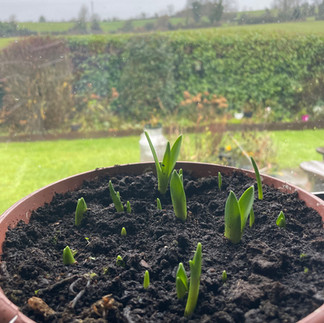Energy Management V's Time Management
- trythealternative

- Dec 15, 2024
- 3 min read
Over the past week as I navigate some family/personal challenges I have become even more aware of the importance of energy management, in our professional lives we are often taught time management skills and whilst useful, what I believe is more important is energy management.
You could have 1 hour of time and in theory could do lots of things with the time however what is going to be best serve you in terms of your energy. For example this week was definitely not the week were mundane tasks or tasks that do not bring me joy got done
I might have had the time but I didn't have the energy.
Seeing and treating clients, gives me energy, walking in nature gives me energy, doing aerial hoop gives me energy, dressing up as Mrs Claus to be part of the Finding Santa Experience in Bluebell Lane brought so much joy all of the above supported me this week and I am deeply grateful for my clients and their flexibility and support.
Tools and Techniques for Energy Management
If you want to incorporate energy management into your daily routine, here are some practical tips:
Track Your Energy Levels: Keep a journal for one week to note your energy highs and lows throughout the day. Recognising patterns can help you schedule tasks more effectively. For women this is even more important and working with you menstrual cycles is key. You can read more on this in the article below. https://www.changingcyclescommunity.com/post/is-cycle-charting-the-answer-you-need
Prioritise Breaks: Short, regular breaks can help recharge your energy and improve focus. For instance, taking a 10-minute break every hour can maintain your peak performance.
Incorporate Movement: Find ways to stay active during the day, such as taking short walks, doing some stretches, or even dancing for a few minutes. This physical activity can energize you.
Practice Mindfulness: Engage in activities like meditation or deep-breathing exercises. These practices can help calm your mind and restore energy.
Focus on Nutrition: Eating balanced meals with proteins, healthy fats, and complex carbohydrates can help maintain steady energy levels. Studies suggest that meals incorporating these nutrients can keep you focused for up to 4 hours post-consumption.
Tips for Blending Time and Energy Management
Plan with Awareness: When building your schedule, assign tasks based on when your energy levels are highest. For instance, save analysis tasks for the morning and routine chores for the afternoon.
Minimize Distractions: Identify and eliminate anything that drains your energy, like constant notifications or overlapping tasks.
Review Regularly: Periodically check your progress. If a task feels draining, it might be worth reassessing the timing or approach, also perhaps it can be delegated.
Establish Routines: Creating consistent patterns that match your energy cycle can help reduce decision fatigue and boost efficiency.
Practice Self-Compassion: It's natural to have low-energy days. Flexibility in your plans based on actual energy levels can prevent discouragement.
Finding Your Balance
The discussion around time management versus energy management is ongoing, but it's clear that both are vital for a fulfilling and productive lifestyle. Relying solely on time management can create a frantic pace, while focusing only on energy management might lead to missed deadlines.
Integrating these two approaches allows you to align your tasks with not only the hours available but also the energy necessary to complete them successfully. By managing both your time and energy effectively, you can create a workflow that meets deadlines and nurtures creativity.
Remember to nurture healthy boundaries, prioritise tasks and people. As cliched as it sounds you cannot be everything to everybody and you cannot pour from an empty cup.
Be gentle with you.



























Comments